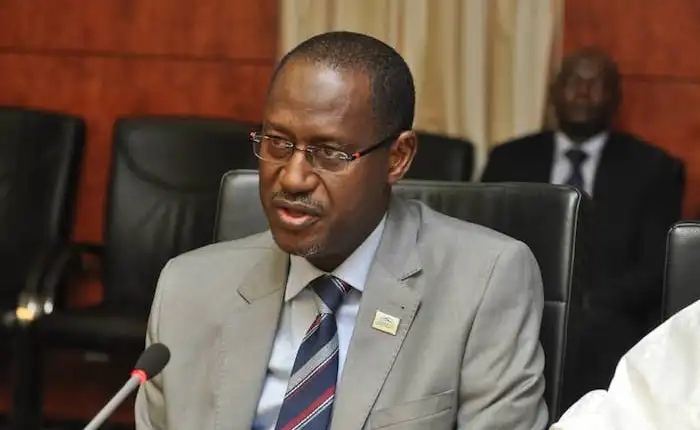Issues as FG intensifies ground rent collection
…Says over 90% of land unregistered The issue of ground rent is no longer new in Nigeria with the federal and state governments intensifying moves to mop up revenue from occupants of properties that have not been paying the tax. The inefficiencies in the collection process have resulted in substantial financial losses as many […]

-
…Says over 90% of land unregistered
The issue of ground rent is no longer new in Nigeria with the federal and state governments intensifying moves to mop up revenue from occupants of properties that have not been paying the tax.
The inefficiencies in the collection process have resulted in substantial financial losses as many property owners and leaseholders are either unaware of their obligations or face challenges in payment due to complicated procedures. As a result, the government has struggled to maintain a steady income stream, which hampers its ability to fund essential services and infrastructure projects.
Ground rent is a tax charged and collected by a state government on land (both developed or undeveloped) that was granted by the state government. It is often paid by a land holder within a given period.
The federal government has handed down a 60-day notice to all federal Certificates-of-Occupancy title owners in Nigeria to either pay up their outstanding debts or face full revocation of their land documents.
Speaking at the 29th Conference of Directors of Land in Abuja, the Minister of Housing and Urban Development, Ahmed Dangiwa, stated that the persistent failure of the concerned people to comply had resulted in the loss of trillions of naira in revenue to the federal government.
At the opening ceremony of the two-day programme, Dangiwa stated that the government had also observed the activities of various residents’ associations of federal government landed properties that were preventing ministry staff from accessing the estates for billing purposes and enforcement of non-payments.
The conference was themed ‘Equitable Land Stewardship: Challenges of Land Administration and its Impact on Climate Change and Community Rights’.
It brought together experts, policymakers, and community representatives.
Dangiwa said, “I want to use this occasion to address pertinent issues that are hampering the ability of government to maximise the revenue earning potential of its landed assets. The Federal Ministry of Housing and Urban Development is aware that several owners of its titled properties have failed to pay ground rent and other statutory charges to the ministry for several years now.
“This non-compliance has resulted in the loss of trillions of naira in revenue to the federal government. Under the Renewed Hope Agenda of President Bola Tinubu, this cannot be tolerated, as this revenue is much needed to deliver the Renewed Hope Agenda to Nigerians.
“As such, all federal C of O title owners are hereby given a 60-day notice to settle all outstanding ground rents and statutory charges. Failure to make payment within this period will result in the revocation of their C of Os.”
He listed some challenges in land administration in Nigeria as the complexity of Nigeria’s land laws, particularly the Land Use Act of 1978, which, he said, continued to pose significant challenges.
Besides, Dangiwa mentioned the lengthy, expensive and complicated land titling and registration processes, which are was discouraging many Nigerians from formalising land ownership.
He also highlighted the lack of formal land titles, which prevents landowners from accessing credit and leveraging their land as a financial asset, particularly in rural areas.
Dangiwa emphasised the clash between formal legal structures and customary land tenure systems, especially in rural areas, which created uncertainty and hindered land transactions.
He added that the ministry was partnering with the World Bank to address Nigeria’s longstanding land registration challenges, with over 90 per cent of the land in the country still unregistered, leading to an estimated $300 billion in dead capital.
“Let me state that we are still in a state of emergency regarding our level of land administration. It is, in fact, a national economic, security and social development risk. We must understand this and resolve to act with the urgency that is required,” he noted.
Also, the communique of the conference, seen by Daily Trust, encouraged legal reforms that recognise and protect women’s land rights as well as intervention in inheritance practices that deprive women of access by enacting laws that permit women to own, use and manage land be put in place.
One key recommendation from the communique is also the resolve to adopt electronic revenue collection system for land charges; while encouraging all stakeholders to implement comprehensive automation of land registries and Electronic Mortgage Asset Registry System (EMARS) in the country.
The communique also called for the adoption of the reviewed 2024 Compensation Assessment methodologies and rates for crops and economic trees, while urging the federal government to hasten actions on the validation of the draft National Land Policy.
However, a real estate expert, Musa Ibrahim, while reacting to the development, advised the government to extend the 60-day ultimatum as it was too sudden.
He said “Ground rent collection is a continuous process, as such the 60 days ultimatum, for me is too sudden. People should be given time because ground rent is a tax and you don’t pay all your taxes in one day.”
